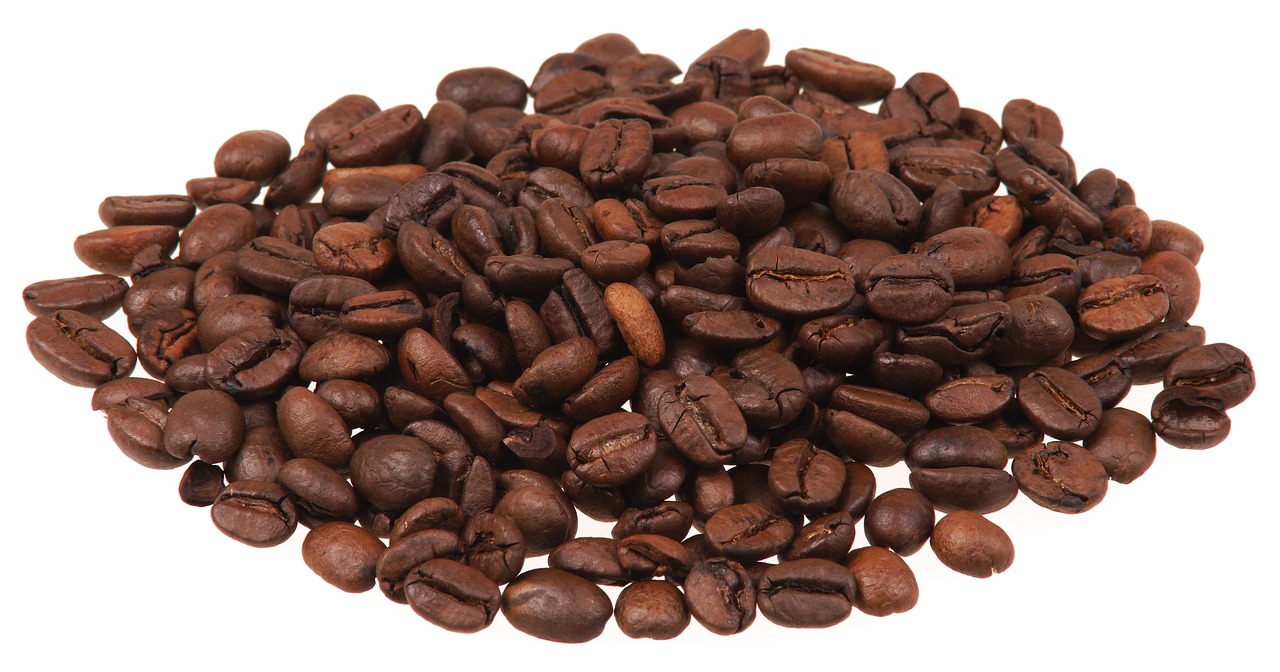How to Transition to a Plant-Based Diet
Transitioning to a plant-based diet can be a significant change in your eating habits, but the benefits it offers are immense. Not only does it have positive impacts on your health, but it also contributes to environmental sustainability and animal welfare. Making this shift requires careful planning and a willingness to explore new foods and recipes.
When embarking on this journey, it's essential to educate yourself on plant-based nutrition. Understanding the key nutrients found in plant foods, such as protein sources, vitamins, and minerals, is crucial for maintaining a balanced diet. By learning how to combine different plant-based ingredients, you can ensure that you are meeting your nutritional needs.
Instead of completely eliminating animal products from your diet overnight, consider gradually reducing your consumption. Start by incorporating meatless days into your week and experimenting with plant-based alternatives for your favorite dishes. This gradual approach can make the transition smoother and more sustainable in the long run.
One exciting aspect of transitioning to a plant-based diet is the opportunity to explore new recipes and ingredients. Get creative in the kitchen by trying out a variety of fruits, vegetables, whole grains, and legumes. Experimenting with different flavors and cooking techniques can make the transition more enjoyable and help you discover new favorite meals.
As you navigate the world of plant-based eating, it's helpful to find substitutes for your go-to animal products. Tofu, tempeh, seitan, and plant-based milks are excellent alternatives that can be used in a wide range of dishes. Additionally, exploring vegan cheeses and other plant-based dairy products can add variety to your meals and make the transition easier.
Meal planning plays a crucial role in maintaining a balanced plant-based diet. Take the time to plan your meals for the week, including snacks and lunches, to ensure that you have nutritious options readily available. Planning ahead can also help you save time and reduce food waste by utilizing ingredients efficiently.
Connecting with the plant-based community can provide valuable support and inspiration during your transition. Joining online forums, social media groups, or attending local meetups can help you stay motivated and exchange tips and experiences with like-minded individuals. Building a network of support can make the journey more enjoyable and sustainable.
Listen to your body throughout the transition process. Pay attention to how different foods make you feel and make adjustments as needed to ensure you are meeting your nutritional requirements. Your body's response to a plant-based diet may vary, so it's essential to tailor your eating habits to suit your individual needs.
Celebrate your progress as you transition to a plant-based diet. Every step towards a more plant-focused lifestyle is a significant achievement that benefits not only your health but also the planet and animals. Acknowledge the positive impact you are making and take pride in the positive changes you are implementing in your life.

Educate Yourself on Plant-Based Nutrition
Transitioning to a plant-based diet can be challenging but rewarding. This article provides guidance on making the switch, including tips on meal planning, shopping, cooking, and ensuring proper nutrition.
Understanding the basics of plant-based nutrition is crucial for a successful transition. Learning about essential nutrients, protein sources, and how to balance your meals for optimal health is essential. By educating yourself on plant-based nutrition, you can ensure that you are meeting your body's needs while enjoying a variety of plant-based foods.

Gradually Reduce Animal Products
When transitioning to a plant-based diet, it's essential to approach it gradually to ensure a smooth and sustainable shift. Instead of completely eliminating all animal products from your meals overnight, consider taking small steps towards reducing your consumption. This gradual reduction approach allows your taste buds and digestive system to adapt to the changes more comfortably. Start by designating specific days of the week as meatless or dairy-free and gradually increase the frequency as you become more accustomed to plant-based alternatives.
One effective strategy is to explore plant-based substitutes for your favorite animal products. By discovering alternatives that mimic the taste and texture of meat, dairy, and other animal-derived ingredients, you can make the transition more seamless. Tofu, tempeh, and seitan are excellent sources of plant-based protein that can be used in place of meat in various dishes. Additionally, plant-based milks such as almond, soy, or oat milk, along with vegan cheeses, offer dairy-free options for your meals.
As you gradually reduce animal products in your diet, take the opportunity to experiment with new recipes and ingredients. Embrace the diversity of plant-based foods by incorporating a wide range of fruits, vegetables, grains, and legumes into your meals. This exploration not only adds excitement to your culinary experience but also ensures that you are receiving a variety of nutrients essential for your health.
Remember, the key to successfully transitioning to a plant-based diet is not about deprivation but rather about exploration and discovery. By gradually reducing animal products, finding suitable substitutes, and experimenting with new flavors, you can make the shift towards a more plant-centric way of eating an enjoyable and fulfilling journey.

Experiment with New Recipes and Ingredients
Transitioning to a plant-based diet opens up a world of culinary possibilities, allowing you to experiment with new recipes and ingredients that can transform your meals into flavorful and nutritious experiences. Embracing this change is not just about what you're removing from your plate but also about the exciting additions you can make to it. Think of it as embarking on a culinary adventure where each meal is a chance to discover fresh flavors and textures that will tantalize your taste buds.
When you start exploring plant-based recipes, you'll encounter a diverse array of fruits, vegetables, grains, legumes, nuts, and seeds that can serve as the building blocks of your meals. Consider it as painting on a blank canvas, where each ingredient adds a unique hue to the masterpiece that is your dish. From vibrant salads bursting with colors to hearty stews brimming with wholesome goodness, the options are endless and limited only by your imagination.
One way to approach this culinary exploration is by trying out different cooking techniques that enhance the natural flavors of plant-based ingredients. Roasting vegetables to bring out their sweetness, marinating tofu for a burst of umami, or simmering lentils with aromatic spices can elevate your dishes to new heights. It's about getting creative in the kitchen and letting your taste buds guide you towards creating meals that are not only satisfying but also nourishing.
Moreover, don't be afraid to mix and match ingredients to create unique flavor combinations that excite your palate. Blend creamy avocados with zesty citrus fruits, toss earthy mushrooms with fragrant herbs, or pair sweet fruits with savory grains for a delightful fusion of tastes. The beauty of experimenting with new recipes and ingredients lies in the endless opportunities to surprise your senses and expand your culinary horizons.

Find Plant-Based Substitutes
When transitioning to a plant-based diet, finding suitable substitutes for your favorite animal products is crucial. These substitutes not only help make the switch easier but also provide the necessary nutrients for a balanced diet. Plant-based alternatives are becoming more accessible and diverse, offering a wide range of options to replace meat and dairy in your meals.
One popular plant-based substitute is tofu, a versatile ingredient made from soybeans that can mimic the texture of meat in various dishes. Tofu is rich in protein and can be used in stir-fries, salads, and even desserts. Another option is tempeh, a fermented soy product that adds a nutty flavor and a hearty texture to meals.
For those craving the taste of meat, seitan is a wheat-based protein that closely resembles the texture of chicken or beef. It can be seasoned and cooked in various ways to create delicious plant-based versions of your favorite dishes. Plant-based milks, such as almond, soy, or oat milk, are excellent substitutes for dairy milk and can be used in cooking, baking, or enjoyed on their own.
Vegan cheeses are also gaining popularity as plant-based substitutes for traditional dairy cheeses. Made from nuts, soy, or coconut, vegan cheeses come in a variety of flavors and textures, making them a great addition to sandwiches, pizzas, or cheese platters. Exploring these plant-based substitutes can add diversity and flavor to your meals while supporting your transition to a plant-based diet.

Plan Your Meals in Advance
Planning your meals in advance is a crucial step in transitioning to a plant-based diet. By taking the time to carefully plan your meals, you can ensure that you have nutritious and satisfying options readily available throughout the week. This not only helps you stay on track with your plant-based goals but also saves you time and reduces the temptation to opt for less healthy convenience foods.
One effective way to plan your plant-based meals is to create a weekly meal schedule. This can involve deciding on the main dishes you will prepare for each day, as well as planning out accompanying sides and snacks. By having a clear outline of your meals for the week, you can streamline your grocery shopping and cooking process, making it easier to stick to your plant-based diet.
Consider incorporating a variety of plant-based foods into your meal plan to ensure you are getting a wide range of nutrients. Include plenty of fruits, vegetables, whole grains, legumes, nuts, and seeds in your meals to create balanced and flavorful dishes. Experimenting with different ingredients and recipes can make meal planning more exciting and help prevent boredom with your plant-based diet.
Another helpful tip for planning your plant-based meals in advance is to batch cook certain items. Prepare large batches of grains, beans, or sauces that can be used in multiple dishes throughout the week. This can save you time and effort on busy days when you may not have the energy to cook from scratch.
Additionally, don't forget to consider your schedule and lifestyle when planning your meals. If you know you have a hectic day ahead, opt for quick and easy meal options that require minimal preparation. On the other hand, if you have more time on weekends, use that opportunity to try out new recipes or prepare more elaborate dishes.
Overall, meal planning is a valuable tool in successfully transitioning to a plant-based diet. By investing time and effort into planning your meals in advance, you can set yourself up for success and make the switch to a plant-based lifestyle more manageable and enjoyable.

Connect with the Plant-Based Community
Connecting with the plant-based community can be a valuable source of support and inspiration as you navigate your transition to a plant-based diet. By engaging with like-minded individuals, you can share experiences, gather tips, and stay motivated on your journey towards a more plant-focused lifestyle.
One way to connect with the plant-based community is through online forums and social media groups dedicated to plant-based living. These platforms offer a space to ask questions, seek advice, and engage in discussions with others who are also exploring the benefits of a plant-based diet.
Additionally, consider joining local meetups or events focused on plant-based eating. Meeting fellow plant-based enthusiasts in person can provide a sense of community and camaraderie, allowing you to exchange recipes, dining recommendations, and personal insights on transitioning to a plant-based lifestyle.

Listen to Your Body
When transitioning to a plant-based diet, it's essential to listen to your body and be attuned to its signals. Your body is a remarkable machine that communicates its needs and responses, so it's crucial to pay attention and make adjustments accordingly. By tuning in to how you feel physically and mentally, you can ensure that you are meeting your nutritional requirements and thriving on a plant-based diet.
One way to listen to your body is to observe how you feel after meals. Notice if certain foods make you feel energized and satisfied, or if they leave you feeling sluggish or bloated. This awareness can help you identify which foods work best for you and tailor your plant-based diet to suit your individual needs.
Additionally, pay attention to any changes in your energy levels, mood, digestion, and overall well-being as you transition to a plant-based diet. Your body may require time to adjust to new eating habits, so be patient with yourself and give your body the time it needs to adapt.
If you experience any persistent symptoms or concerns, such as fatigue, weakness, or digestive issues, consult with a healthcare professional or a registered dietitian. They can provide personalized guidance and ensure that you are meeting your nutritional needs while following a plant-based diet.

Celebrate Your Progress
Transitioning to a plant-based diet is a significant accomplishment that deserves celebration. As you progress on this journey towards a healthier and more sustainable lifestyle, it's essential to acknowledge and celebrate each milestone you achieve. Whether it's successfully completing a meatless week, trying a new plant-based recipe, or simply feeling more energized and vibrant, every step forward is worth celebrating.
One way to celebrate your progress is by reflecting on the positive impact you are making on your health, the environment, and animal welfare. By choosing plant-based foods, you are not only nourishing your body with wholesome nutrients but also reducing your carbon footprint and supporting animal welfare. Take a moment to appreciate the positive changes you are bringing about through your dietary choices.
Another way to celebrate is by treating yourself to a special plant-based meal or indulging in a delicious plant-based dessert. Explore new restaurants that offer plant-based options or challenge yourself to recreate a favorite dish using entirely plant-based ingredients. Enjoying a tasty and satisfying meal can be a rewarding way to mark your progress and remind yourself of the joys of plant-based eating.
Additionally, consider sharing your achievements with others in the plant-based community. Whether it's through social media posts, joining a local meetup, or simply talking to friends and family about your journey, sharing your successes can inspire others and create a sense of camaraderie. Celebrating together with like-minded individuals can strengthen your commitment to a plant-based lifestyle and provide encouragement for the road ahead.
Frequently Asked Questions
- What is a plant-based diet?
A plant-based diet focuses on consuming foods derived from plants, such as fruits, vegetables, whole grains, nuts, seeds, and legumes. It minimizes or eliminates animal products like meat, dairy, and eggs.
- Will I get enough protein on a plant-based diet?
Yes, you can meet your protein needs on a plant-based diet by including sources like beans, lentils, tofu, tempeh, nuts, seeds, and whole grains. It's important to eat a variety of these protein-rich foods to ensure adequate intake.
- How can I ensure I get all the necessary nutrients on a plant-based diet?
By consuming a diverse range of fruits, vegetables, whole grains, legumes, nuts, and seeds, you can obtain essential nutrients like vitamins, minerals, and antioxidants. Consider consulting a healthcare provider or a registered dietitian for personalized guidance.
- Is a plant-based diet suitable for children and pregnant women?
A plant-based diet can be suitable for individuals of all ages, including children and pregnant women, when well-planned to meet specific nutrient requirements. It's crucial to ensure adequate intake of nutrients like iron, calcium, vitamin B12, and omega-3 fatty acids during these life stages.
- How can I deal with cravings for animal products when transitioning to a plant-based diet?
Exploring plant-based alternatives that mimic the flavors and textures of animal products can help satisfy cravings. Additionally, focusing on incorporating flavorful herbs, spices, and seasonings into your meals can enhance satisfaction and enjoyment.
- Are there any environmental benefits to following a plant-based diet?
Yes, adopting a plant-based diet can have positive environmental impacts by reducing greenhouse gas emissions, preserving water resources, and decreasing deforestation associated with animal agriculture. Choosing plant-based foods can contribute to a more sustainable food system.



















